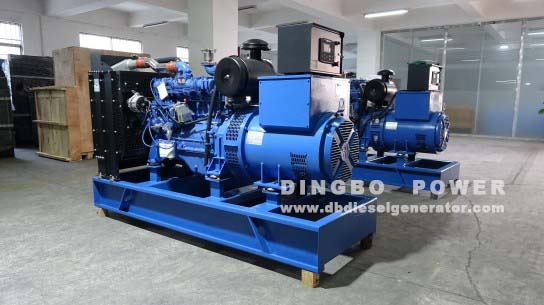Diesel-powered generators provide a stable and efficient source of backup power for homes, businesses, and industrial facilities. However, many users don’t realize the importance of right oil for their diesel engines. Using the wrong type of oil can result in engine damage and reduced lifespan. In this article, we’ll help you understand more about generator oil and what type oil is best for your diesel generator.
What is generator oil?
Generator oil, or generator engine oil, is a special type of oil that is designed to ensure the proper functioning of a generator. It can lubricate the engine, protect its moving parts from wear and tear, cool the engine, and help to seal the engine’s pistons. Using the right type of oil in a generator is essential. You should follow the generator’s specifications and the manufacturer’s recommendations to select the type of oil required for your generator.

Does it matter what oil you use for a diesel engine?
Yes, as a lubricant used in internal combustion engines, generator oil is important for its proper operation and longevity. Compared to standard models, diesel engines operate at a higher compression ratio and generate more heat and soot during the combustion process, you may need an oil with additional heat resistance and higher levels of detergents and dispersants to handle the higher heat and soot levels.
What are the different types of oil for diesel engines?
In general, when you buy a new diesel generator set, the manufacturer will provide information about the specific oil type and viscosity to use. Typically, the choice of the oil types for power generators include mineral, synthetic and semi-synthetic types. Here are the three available kinds of engine oil:
Mineral oil
Mineral oil, also known as conventional oil or standard oil, is made from crude oil. Mineral oils are usually at the thicker grades of engine oils and can provide the lubrication to protect your generator under normal operating conditions.
Synthetic oil
Synthetic oil is a high-performance oil made from man-made chemicals. Compared to mineral oil, synthetic oil has better oil viscosity and far superior for long running applications. It is designed for a wider range of temperatures and are suitable for generators operating in harsh conditions, such as extreme temperatures or heavy usage. The cost of synthetic oil is also higher and it is about twice the price of the standard mineral oi.
Semi-synthetic oil
Semi-synthetic oil is a mixture of both mineral and synthetic oil. If you’re looking for a balance between cost and performance of generator oil, semi-synthetic oil will be a good choice for you. It’s cheaper than synthetic oil and provides better performance than mineral oil.
Synthetic oil has a better performance and fuel economy and longer life over mineral oil. Most modern diesel engines will have synthetic oil. But it doesn’t mean that synthetic oil is necessary for all diesel generator sets. It is important to consult your generator’s manual and choose the manufacturer-approved oil.
Which oil grade is best for a diesel engine?
There are single grade generator oils and multi-grade generator oils on the market. Single grade oils are designed to perform within a specific temperature range and viscosity grade. Multi-grade oils are formulated to meet the requirements of multiple grades and can provide adequate protection at both the low-temperature range and the high-temperature range. When choosing between these two oil types, consider the climate and conditions in which you will be using the generator.
Oil viscosity stands for the oil’s level of resistance to flow and shear. Viscosity is a lot more complicated in diesel engines as the flow of the oil depends on the temperature of the engine. Your engine manufacturer normally recommends the viscosity number of oils that you can use with the generator. Every generator oil type has a specific label, which is usually made up of two figures. For example, 15W-40 or 10W-30. What does it mean? Firstly, the letter W stands for Winter. The first number in the code is how well the oil can be pumped at cold temperatures and the second number indicates that the oil is thicker in hot temperatures. If you live in a cold climate, you may need to use a lower viscosity oil to ensure easy starting in colder temperatures.
So, which oil grade is best for a diesel engine? Keep in mind that any engine oil is defined by its performance level and its viscosity. You need to check the manufacturer’s recommendations and choose the appropriate viscosity grade based on the expected temperatures.
Conclusion
Engine oil plays an important role in keeping your generator running smoothly. It is essential to choose the right oil for your diesel generator. Using the wrong oil can cause damage to your machine. When purchasing oil for diesel generator, you need to consider many factors, such as the oil composition, viscosity index, climate, operating temperature of generator, etc.
If you are unsure about any of maintenance requirements for diesel generator or looking for a high-quality backup power generator, feel free to contact us. At Dingbo Power, we offer a variety of generator sets catering to user needs. Our experienced and professional experts can provide any guidance or assistance that you may need. Contact us at dingbo@dieselgeneratortech.com, and we will gladly help you.
Comments
Post a Comment